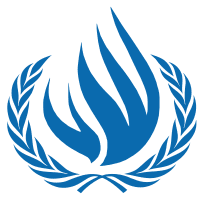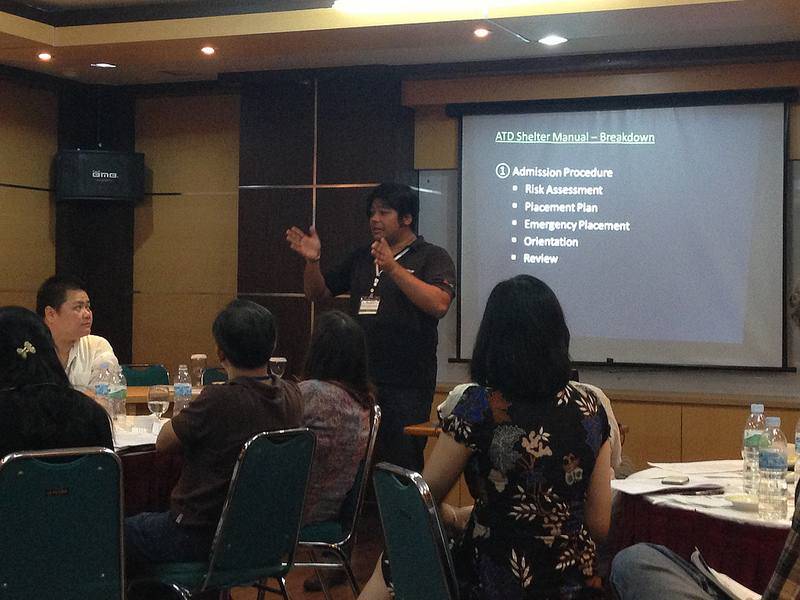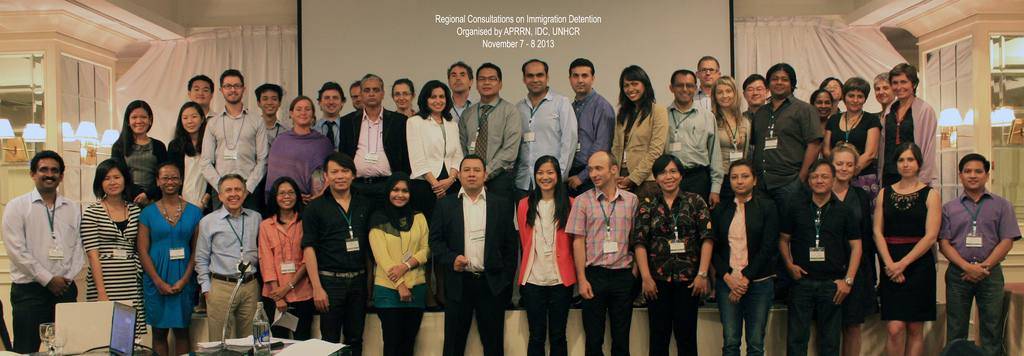IDC Submission to Australian HRC Child Detention Inquiry
The IDC has made the below submission to the Australian Human Rights Inquiry into Child Immigration Detention.
[gview file="https://idcoalition.org/wp-content/uploads/2014/06/IDC-Submission_Australia-Child-Inquiry_FINAL.pdf"]
Mental and Physical Health Crisis for Nauru and Manus Detainees
More reports have emerged that add to the growing body of research on how prolonged or indefinite detention can seriously damage people.
These reports are on the physical and mental health of refugees and asylum seekers detained indefinitely on Nauru and Manus Island, as well on the Australia mainland and Christmas Island.
The Guardian reveals details of a comprehensive report produced by five independent clinical experts on conditions inside the Nauru detention center and their impact on detainees. Extremely poor health care for children and pregnant women and a lack of child protection systems are some of the key issues.
The Sydney Morning Herald also reveals findings from a report produced by International Health and Medical Services that about half the asylum seekers on Nauru and Manus Island are suffering from significant depression, stress or anxiety. This is compared to those detained on the Australian mainland and on Christmas Island, where a third are suffering major mental health problems. For both groups, the severity of these conditions has increased the longer they are held in detention centers.
The Cambodia Solution
Cambodia has confirmed its agreement to resettle refugees detained in Australia's offshore processing center in Nauru. IDC members Asia Pacific Refugee Rights Network and Refugee Council of Australia have expressed concerns over this arrangement.
Cambodia has limited capacity to support new refugee arrivals in the country. Refugees currently in Cambodia have no access to sustainable housing, work permits or legal stay rights.
The Cambodian government has said they will only accept refugees who have agreed to voluntarily settle in Cambodia. But there are concerns that decisions may not be truly voluntary given the choice of either resettlement in Cambodia or temporary settlement in Nauru with no clear prospect of resettlement elsewhere.
UN Committee Against Torture issues Concluding Observations on Thailand
 GENEVA (May 2014) - At its fifty-second session in May 2014, the United Nations Committee Against Torture (CAT) adopted its Concluding Observations on the Initial Report of Thailand under the United Nations Convention against Torture and Other Cruel, Inhuman or Degrading Treatment or Punishment ("Convention Against Torture").
GENEVA (May 2014) - At its fifty-second session in May 2014, the United Nations Committee Against Torture (CAT) adopted its Concluding Observations on the Initial Report of Thailand under the United Nations Convention against Torture and Other Cruel, Inhuman or Degrading Treatment or Punishment ("Convention Against Torture").
The Committee Against Torture is the body of 10 independent experts that monitors implementation of the Convention Against Torture by its State parties. The Convention Against Torture is one of the most widely ratified human rights instruments in the world, with 156 State parties.
All States parties are obliged to submit regular reports to the Committee on how the rights are being implemented. States must report initially one year after acceding to the Convention and then every four years. The Committee examines each report and addresses its concerns and recommendations to the State party in the form of "concluding observations".
The Committee raised concerns over the lengthy and in some cases indefinite detention of asylum and seekers in immigration detention centers in Thailand. It also commented on the lack of independent and systematic review of detention decisions and the restrictive use of alternatives to detention for asylum seekers.
The Committee has urged Thailand to end indefinite detention for asylum seekers and migrants. It has also urged Thailand to guarantee detainees access to independent, qualified and free legal advice and representation.
21. The Committee is concerned at the use of lengthy and, in some cases, indefinite detention in immigration detention centres for asylum seekers and migrants who enter the State party undocumented, as well as at the lack of an independent and systematic review of such detention decisions and the restrictive use of alternatives to detention for asylum seekers (arts. 3, 11 and 16).
The State party should review its detention policy with regard to asylum seekers and give priority to alternatives to detention. The State party should end indefinite detention for asylum seekers and migrants and guarantee them access to independent, qualified and free legal advice and representation, in order to ensure that persons in need of international protection are duly recognized and refoulement is prevented.
IDC Member Amnesty International's submission to the Committee can be found here. Submissions by other civil society organizations and the National Human Rights Commission of Thailand can be found here
Controversial forced returns from Malaysia
Malaysian authorities have returned two UNHCR card holding refugees and one asylum seeker, whose claim for refugee status was pending before UNHCR, back to Sri Lanka.
The three individuals were arrested and detained for 10 days and were then returned on the basis of alleged terrorism activities, though no evidence has been provided to substantiate such claims.
The three individuals were not given access to due process or a fair or public trial, and their return took place without prior notification to family members, lawyers and UNHCR.
IDC members APRRN and Human Rights Watch have issued strong statements condemning the Malaysian government's actions and expressing concerns over the safety of the three individuals.
Both advocate that the principle of non-refoulement has been breached, that is the refugees are being returned to places where their lives or freedom are at threat.
First refugees settled in Nauru
Thirteen refugees including a family from Iran have been released from an immigration detention centre run by the Australian government.
The refugees will now be settled in Nauru after spending months in detention.
There are concerns over Nauru's capacity to absorb resettled refugees given limitations in the country's infrastructure, including its health and education facilities.
Reporting of the settlement can be found here (Guardian) and here (ABC News).
ASEAN Civil Society Conference/ASEAN People's Forum 2014
The ASEAN Civil Society Conference/ASEAN People's Forum was held on 21-23 March 2014 in Yangon, Burma.
The IDC presented on immigration detention trends and developments in the ASEAN region, at a workshop organized by the Asia Pacific Refugee Rights Network on Forced Migration in South East Asia.
The final statement of the ACSC/APF 2014 conference contained a strong recommendation calling for an end to the immigration detention of children and stateless persons by ASEAN member states, and for the implementation of alternatives to detention for these populations. The full text of the statement can be found here.
Tribute to Dr. Irene Fernandez
"Irene Fernandez was an inspiration for millions around the world in her work for the rights of the discriminated, the marginalised, the abused, the hidden.Her tireless support for migrants in detention triggered a response which rippled around the world and created an awareness and call to action unlike anything seen before. The legacy of her work is profound. Those ripples have led to change in ways and places that may never be measured, but her vision for justice for all remains in our hearts and will continue to inspire us. Our love and condolences go out to Irene's family and loved ones at this time."Grant Mitchell, Director of the IDC
Capacity Building Workshop on Alternatives to Detention
On 29th to 30th August, IDC and the Asia Pacific Refugee Rights Network (APPRN) co-organized a successful capacity building workshop on Alternatives to Detention in Jakarta, Indonesia. The workshop was attended by 30 participants from 20 organizations from Indonesia, Thailand, Malaysia, Japan, Philippines, Nepal, and Hong Kong who are actively seeking to establish or expand alternatives to immigration detention (ATD) projects in countries in their respective countries.

The workshop focused on practical skills-based training and included sessions on screening and assessing vulnerability of refugees and asylum seekers, principles to consider when working with traumatised persons, case management and referral systems and minimum standards for running an ATD shelter. Some participants were also invited by Church World Service to visit their alternative to detention project in Jakarta, a shelter for unaccompanied and separated refugee and asylum seeking minors.
Asia NGO Consultations
IDC, together with UNHCR and the Asia Pacific Refugee Rights Network (APRRN) co-hosted the regional consultations on immigration detention, held in Bangkok on 7th and 8th November 2013.
This regional consultation brought members of civil society together with national human rights institutions, UNHCR and other UN/intergovernmental agencies to review progress in addressing the detention of refugees and asylum-seekers in the region, and to identify strategies and opportunities to respond to continuing challenges.
All involved participated in 3 year action planning.





